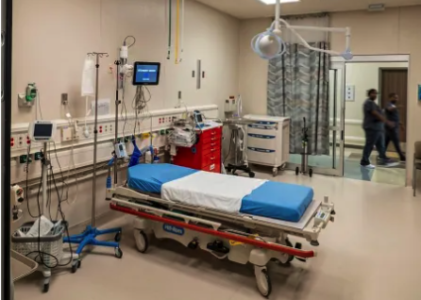Me being an Emergency Physician didn’t know know what Emergency Medicine was and what it’s role was in the hospital setting. So I will try to clear up what it actually means and the types of illness that we deal with on a daily basis. I will also try to be very brief in the career paths that could be taken by any medical student who aspires to be an ER physician.
Emergency Medicine is a medical specialty that deals with the immediate response to a medical emergency. It is an important part of modern medicine, as it ensures that patients get immediate care and attention.
Emergency medicine has become a vital field in modern medicine as it provides an immediate response to any medical emergency. The emergency department is the first point of contact for any critical ill patient. This includes trauma cases like accidents or injuries, unplanned cases like sudden illness or heart attack, and unscheduled visits such as childbirth or psychiatric emergencies.
Some of the emergencies that we encounter on a daily basis in the ER include
- Acute MI – Heart Attack
- Acute CVA – Brain stroke
- Pain anywhere in the body
- Trauma
- Cardiac Arrest
- Anaphylaxis
- Sepsis – Severe bacterial infection
- Chocking
- Drowning
- Poisoning
This is list is very very small, because we deal with a wide range of problems. As my mentor and HOD Dr. Sateesh used to say :
An ER physician should be the jack of all trades and a master of resuscitation !
Who is an Emergency Physician and what are the traits required to be one?
Emergency physicians are the doctors who work in the emergency department (ED) of a hospital. They are specially trained to deal with life-threatening conditions that require immediate medical attention.
Emergency physicians must be able to make quick decisions about diagnosis and treatment, as well as be able to deal with the adrenaline rush that comes with working in a high-pressure environment.
Emergency physicians often see patients who have been in accidents, or who are suffering from heart attacks, strokes, or other medical emergencies. they must be able to assess a patient’s condition quickly and make decisions about the best course of treatment.
Emergency physicians often work long hours, and they may be on call for 24 hours at a time. They must be able to deal with the stress of the job, as well as the emotional impact of seeing patients in life-threatening situations.
But I can tell you from experience, it is well worth it. Like there is no better gratification than being able to put a screaming patient out of their pain, or watching a patient who suffered from paralysis, come to the ER, walking on their own, to thank you.
So who is a good fit for a career in emergency medicine? To be successful in this field, you need to have certain qualities and skills. First and foremost, you need to be a good problem-solver. Emergency situations can be complex and unpredictable, so you need to be able to think quickly and come up with creative solutions.
You also need to be highly adaptable. The emergency department is a dynamic and fast-paced environment, and you must be able to adjust to changing situations and priorities. You should be able to work well as part of a team and to communicate effectively with other healthcare professionals.
In addition, you need to be compassionate and empathetic. Emergency medicine can be emotionally demanding, and you will be dealing with patients who are often scared, anxious, and in pain. It is important to be able to connect with patients on a human level and to provide them with the support and care they need.
Finally, you need to have a strong work ethic and a commitment to lifelong learning. Emergency medicine is a rapidly evolving field, and you need to be willing to stay up-to-date with the latest developments and techniques. This may involve continuing education, attending conferences, and reading medical journals.
If you have these qualities and skills, then a career in emergency medicine may be a good fit for you. It is a challenging, but rewarding field that offers the opportunity to make a real difference in people’s lives.
Because EM is relatively a new branch many students do not know the exact career path to follow. A brief list of the many paths available in no particular order :
- Appearing for USMLE and securing a place in Emergency Medicine Residency in the US.
- Getting Trained for MRCEM (Membership of Royal College of Emergency Medicine ) and moving to the UK to pursue FRCEM.
- Appearing for PLAB and securing an Emergency Medicine Training post in the UK.
- Appearing for NEET PG and securing an MD or DNB Emergency Medicine Post Graduation Seat in India
- Getting trained for 3 years in a Society of Emergency Medicine (SEMI)affiliated hospital and pursuing Masters in Emergency Medicine (MEM) in India
There are multiple pros and cons of each path which are beyond the scope of this post , but if you are really interested in pursuing EM, and would like to know more , please feel free to write to me, I will be happy to address your quires to the best of my ability.
I will be writing many more posts on the importance of Emergency Medicine and the aspects of care that both new doctors and the general public should be aware of to make better use of the specialty.


Good afternoon sir i am a MBBS graduation looking for my career in emergency medicine sir can you guide me about admission and hospital selection process in pursuing of 3 year SEMI sir i am from andhra pradesh sir thankyou sir
Sure. Reach out on Linkedin.com, we’ll talk.